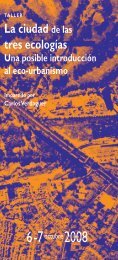Arte Público - Fundación César Manrique
Arte Público - Fundación César Manrique
Arte Público - Fundación César Manrique
You also want an ePaper? Increase the reach of your titles
YUMPU automatically turns print PDFs into web optimized ePapers that Google loves.
ecause I do not believe that modernity, whose inception dates back to the<br />
Enlightenment, has completed its cycle, but rather, in recent years, has shaped itself<br />
into mere – although admittedly substantial – reflection.<br />
It is true that to the Romantics, sculpture – through the Greek ideal of totality –<br />
was a paradigm and that, in painting, the natural landscape constituted the great<br />
metaphor of harmony, the object of their pursuit and dreams. These two ideals went<br />
hand-in-hand with the sublimation of emotion, the advent of aesthetic criterion and<br />
the acknowledgement of the contingency of the human condition. Nonetheless, as<br />
any of us would readily realise, probably due to the persistence of theological and<br />
progressive prejudice, Romanticism – as mannerism before it, for instance, and in<br />
general, any age of precarious cognitive stability – was stigmatised with the label of<br />
the transience that heralds future stable orders.<br />
Indeed, the nineteenth century was, ultimately, characterised by absolute<br />
scientism in everything and, what is more, by the isolated consideration of<br />
everything. This happened because, far from associating things with their outward<br />
appearance and location within a landscape (the prevailing principle of<br />
representation until that time), the tendency was to relate them on the grounds of<br />
their internal and objective structures. There was, instead of a single global object,<br />
a whole world of objects (including the objects of art), each one answering to its<br />
own objective evolutionary dynamic. This perspective disregarded the role of the<br />
observer and the importance of the surroundings (or landscape) to a greater or<br />
lesser extent and, as a logical consequence, totality of whatever kind was<br />
fractionated and splintered. The outcome was that objectivity was reinforced by the<br />
steadfast belief that nature was mechanistic, with no room for uncertainty or<br />
probability, while the space reserved to opinion and, therefore, to poetry, gradually<br />
shrank under the pressure of the preponderance of the discourse of rationalist<br />
idealism (of one or another hue). The world seemed to be reduced to a system of<br />
well-defined equations with constant parameters where, if one variable were<br />
altered, it would be possible to predict accurately what would happen to the others.<br />
Determinism permeated each and every discipline, language became an object with<br />
autonomous rules, metaphysics seemed to wane relentlessly, philosophy was<br />
converted into formal logic and history became a known and predictable argument,<br />
structured in terms of its respective philosophy.<br />
Nonetheless, although the above description of the nineteenth century may<br />
seem derogatory in tone, the cognitive convulsion that the advent of objectivity<br />
and the idea of internal structure (contradicting the principle of representation)<br />
218


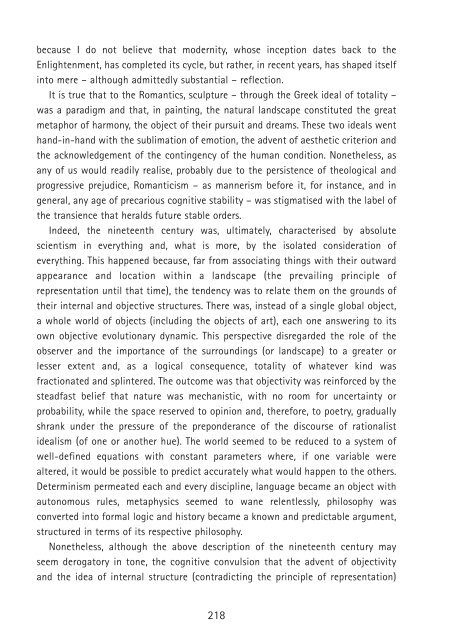

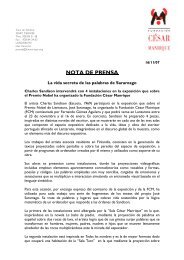
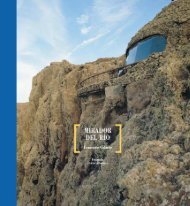

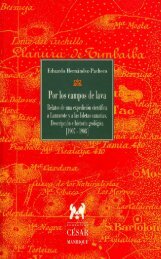
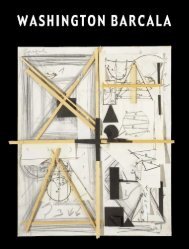
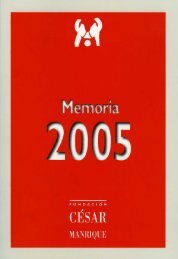
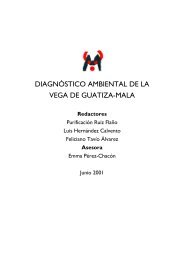
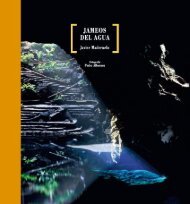
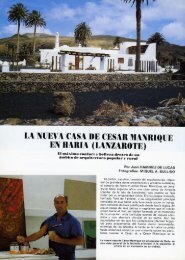

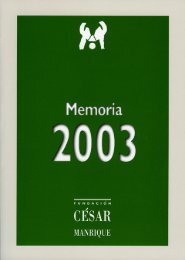
![Becas y premios de la Fundación César Manrique [1997-2006]](https://img.yumpu.com/20766851/1/184x260/becas-y-premios-de-la-fundacion-cesar-manrique-1997-2006.jpg?quality=85)
